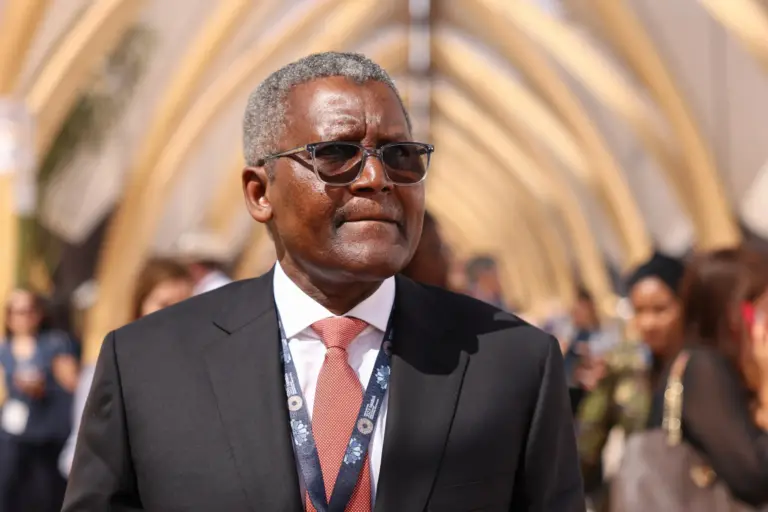Nigeria’s oil and gas sector is embroiled in controversy as petroleum product marketers and depot owners accuse Dangote Refinery of blackmailing the government over the ongoing Naira-for-crude sales deal. The dispute intensifies amid growing uncertainty over the price of Premium Motor Spirit (PMS), commonly known as petrol, as the refinery halts sales in Naira.
According to sources, a crucial meeting of the federal government’s technical Sub-Committee on Domestic Sales of Crude Oil and Refined Products, scheduled for Monday, failed to take place. The delay was attributed to the Nigerian Midstream and Downstream Petroleum Regulatory Authority (NMDPRA) not submitting a vital report on crude oil availability. The committee, led by Zacch Adedeji, Executive Chairman of the Federal Inland Revenue Service (FIRS), was set to review the ongoing deal with Dangote Refinery.
A reliable source confirmed, “The meeting did not hold because NMDPRA did not submit its report assessing the situation.”
Meanwhile, a senior official from the Depot and Petroleum Products Marketers Association of Nigeria (DAPPMAN) accused Dangote Refinery of attempting to manipulate public sentiment against the government. He argued that prior to the Naira-for-crude deal, marketers and retailers were already purchasing imported PMS in U.S. dollars. Consequently, suspending product sales in Naira would not significantly impact costs.
“What Dangote Refinery is doing is cheap blackmail. They are trying to turn the public against the government,” the official stated. He further noted that the refinery’s price reductions were more about market competition than a genuine effort to support Nigerians.
Olufemi Adewole, Executive Director of DAPPMAN, had earlier expressed concerns about the risks of the Naira-for-crude framework. He warned that continuing the policy could harm Nigeria’s foreign exchange stability and deter foreign investment, given that the global oil market primarily operates in U.S. dollars.
“The global oil market operates in U.S. dollars due to its stability. Persisting with this policy could isolate Nigeria from key trade partners and investors who rely on the dollar’s predictability,” Adewole explained.
Dangote Refinery, which has a capacity of 650,000 barrels per day, recently announced the suspension of its Naira-for-crude sales, citing concerns over mismatched sales proceeds and crude purchase obligations. Although the refinery has yet to release updated petroleum pricing, industry experts anticipate that prices will reflect this policy shift.
Amid these developments, marketers and retailers are considering alternative sources of petroleum products should Dangote Refinery’s pricing become uncompetitive. Just days before its announcement, the refinery had reduced the ex-depot price of petrol from N825 to N815 per litre under the Naira-for-crude arrangement.
As of March 14, 2025, data from the Major Energy Marketers Association of Nigeria indicated that the landing cost of petrol was N797.66 per litre. Following Dangote Refinery’s decision to revert to U.S. dollar transactions, concerns over a potential price hike have grown.
Currently, petrol prices at NNPC and Dangote Refinery stations range between N860 and N880 per litre in Lagos and Abuja, while independent marketers sell at N920 to N950 per litre, depending on location. With prices already fluctuating, many Nigerians are bracing for further increases, deepening the uncertainty within the oil and gas sector.
As negotiations around the Naira-for-crude agreement continue, both the government and industry stakeholders await the next steps in this evolving situation.

